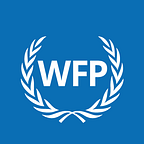Ally-Raza Qureshi: On a scale of 1 to 5, evaluation is a 6
WFP Country Director in Iraq shares his thoughts on the difference an evaluation can make, drawing on evidence from recent reports in the country.
As a senior manager, how important is evaluation evidence in informing your decisions?
On a scale of 1 to 5, it is a 6. It is critical. In Iraq, our portfolio comprises both humanitarian and development assistance and what people do not always understand, is that the type of evidence you require for an emergency operation is very different from the type of evidence you require for a development operation, especially in a transition setting.
“Evaluation becomes very critical in a context like Iraq, where I need to be able to explain to the donors about our impact.”
As a manager, I also need to understand where we are falling short of making the right impact, and how. By addressing it, we will provide that added value to the donor partnering with us. Our biggest strengths are in our outreach and deep field capacity, but our biggest challenge is our programme design capability.
I would value an evaluation that helps me fix that, but ask that the evaluation recommendations be practical, contextual and pragmatic. Can they [recommendations] be implemented? And by implementing them, will there be an impact or not? So, we had very good, frank conversations with the evaluation teams. I think they enjoyed it. I loved it.
The evaluation of WFP Livelihood support, asset creation and climate adaptation activities was completed in mid-2023. How strategically useful was that evaluation for the county office in Iraq? Did the findings help to inform the new CSP?
The biggest challenge for management in an operation like this is that you are firefighting with very limited time for strategic thinking. [With evaluation] you get an external set of eyes looking at everything afresh and from a distance.
“You may not change everything, but you become more informed about the blind spots.”
We had made a conscious choice of stepping away from NGOs and moving into a direct implementation modality and working more with the Government. One of the key questions that we asked of the evaluation was the extent to which this approach has been effective. As a manager, I wanted to know to what extent our capacity strengthening approach related to government institutions. Reaffirmation of the impact that some of our projects have had, was a great moment for me because it wasn’t just us saying that we changed the lives of so many people but an evaluation, coming with independent evidence, saying this worked well.
A lot of good points came up and are already being factored into the next CSP. On government capacity strengthening there was recognition that there needs to be upstream and downstream capacity strengthening, and that there needs to be vertical and horizontal integration. For example, we cannot do capacity strengthening within the Ministry of Water in isolation from the Ministry of Agriculture. We need to bring them together as part of the capacity strengthening effort, because both are important ministries for food security. Likewise, leveraging capacity strengthening downstream will also be critical. So, this was one of the tweaks that we are putting forward in the next CSP.
What was your biggest lesson learnt from the evaluation?
From a design perspective, the evaluation found that we were doing a lot of micro-projects (livelihood support, asset creation, and climate adaptation) and setting ourselves up to becoming an NGO in the development space. So we consolidated our projects into four key areas that are going to be our identity and focus in Iraq. This will enable us to bring our six major projects to scale, to anchor it with the government, and have an impact that is broader and easily measured.
From your perspective as the senior manager, do you feel that evaluation is worth the investment?
It’s worth the investment for two reasons. One, it gives donors confidence that we are an organization which is serious about learning and accountability. The way the evaluation process is carried out is very good because the evaluation team is speaking independently with donors and then discussing and sharing the findings openly. The process itself is great and helps bring donor confidence.
Then, as a manager you have do a lot of things based on trust and based on assumptions. Through evaluation, you find out that either your trust (in your implementing team) was wrong, or your assumption was wrong, or that it was correct. If results are positive, you know you’ve made the right assumptions and you trusted in people who had the capacity and capability to deliver. But if it is not, then you know, as a manager, what corrective action you need to take going forward. So, there is value in all these findings.
There is value in implementing their recommendations, making adjustments to your programme design and, to some extent, implementation. But for me, making sure design adjustments are made in a timely way, is the most critical aspect.
Recent evaluations include: Evaluation of WFP Livelihood support, asset creation and climate adaptation in Iraq; Evaluation of Iraq WFP Country Strategic Plan, 2020–2024
